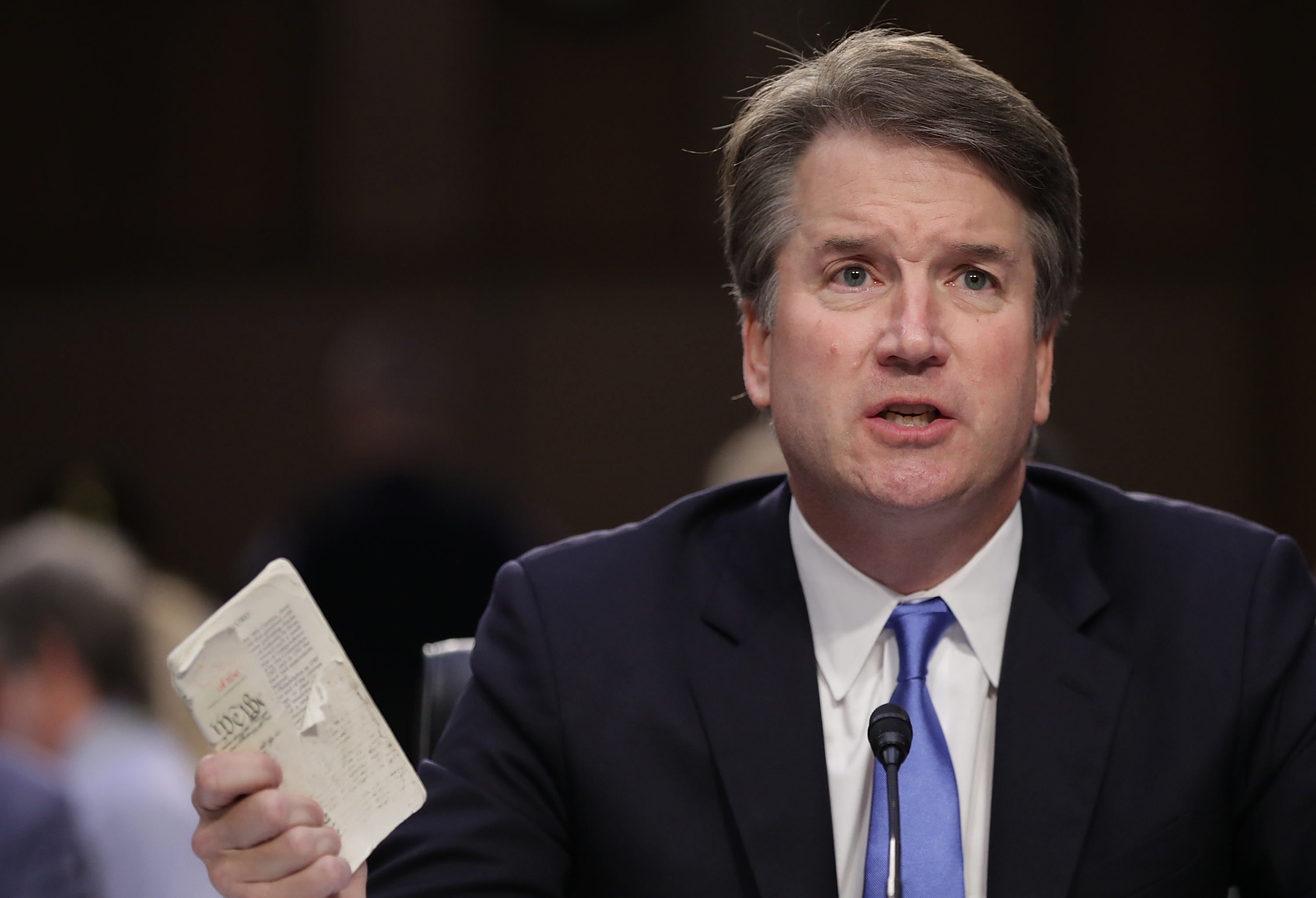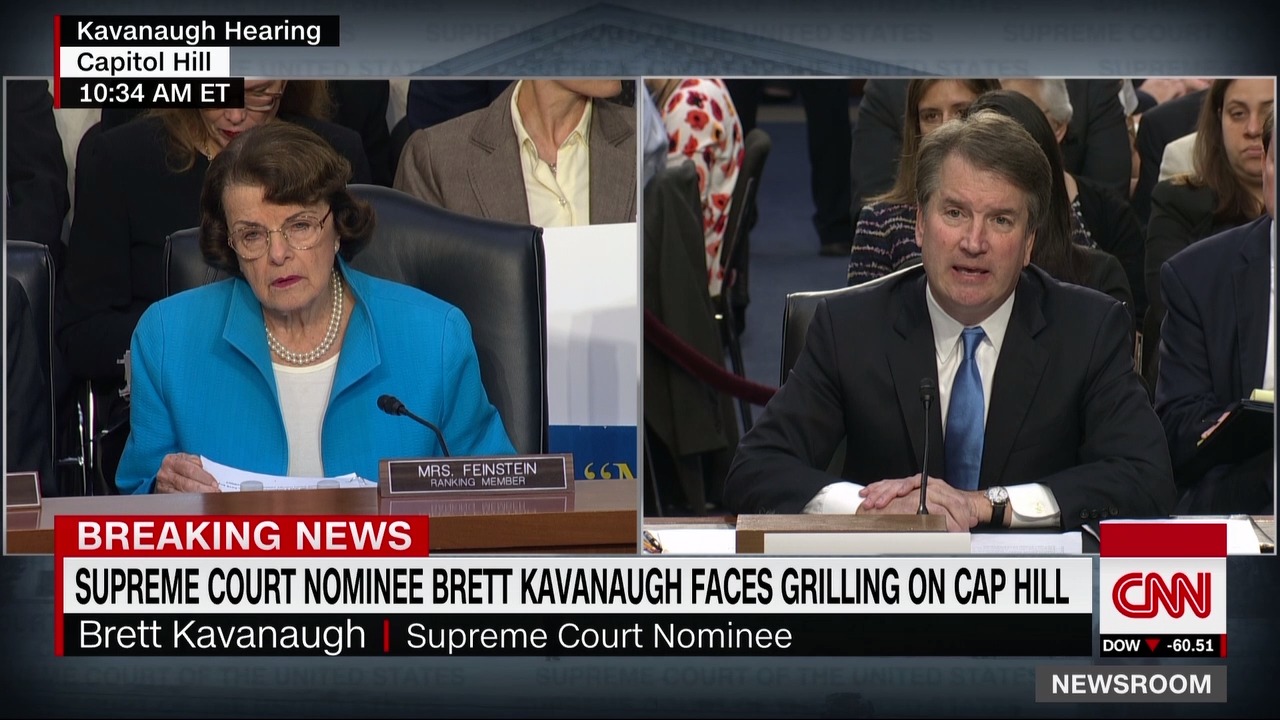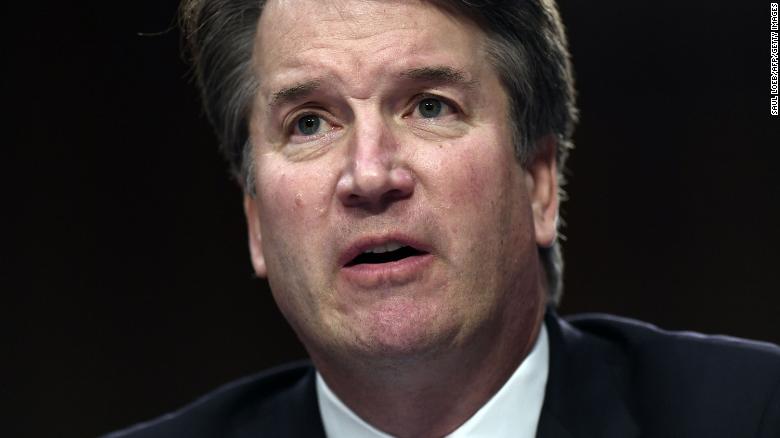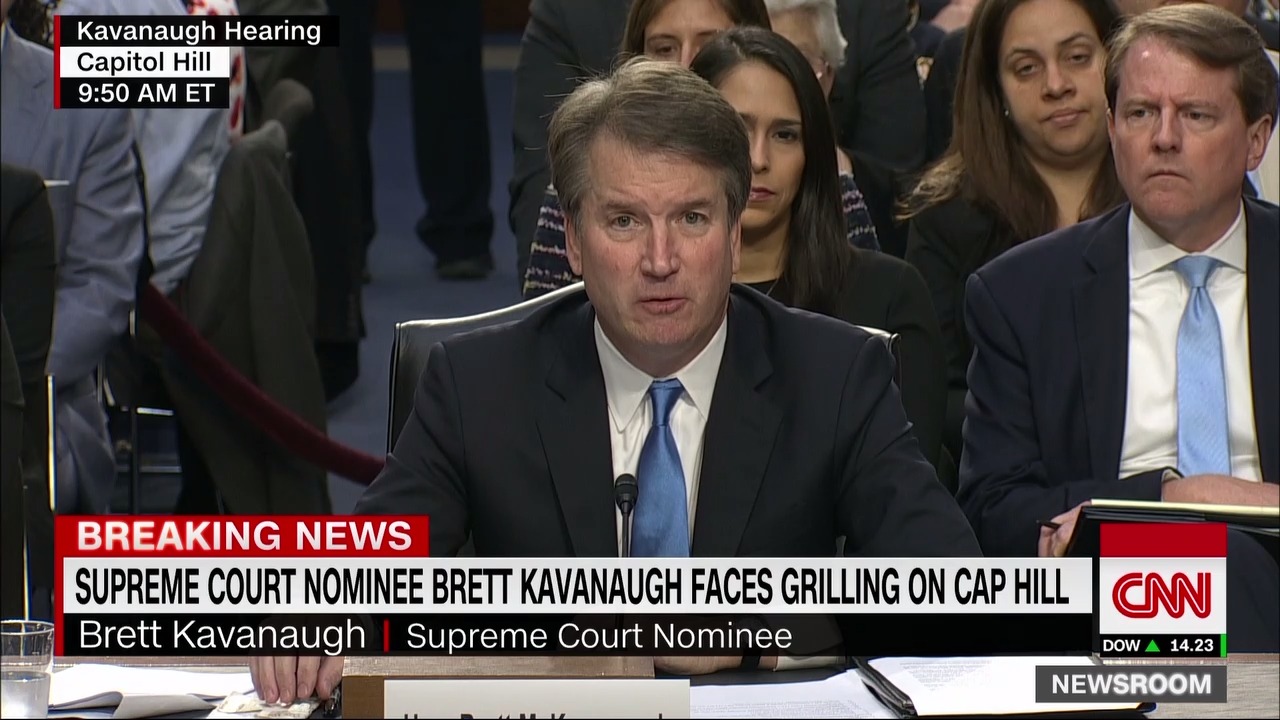Judge Brett Kavanaugh recalled his relationship with Judge Alex Kozinski, who retired last year after accusations of sexual misconduct.
Kavanaugh suggested his communications over the last number of years were infrequent except when working on a specific project together.
Kavanaugh denied knowing anything about the allegations before they came to light and said he was “shocked” by them, calling them a “gut punch” for him and the judiciary.
He remembered finding out about the allegations: "And when I heard, when it became public I think it was in December it was a gut punch. It was a gut punch for me, it was a gut punch for the judiciary and I was shocked and disappointed, angry, a swirl of emotions."
“No woman should be subjected to sexual harassment in the workplace,” especially in the judiciary he said.
Visit here for more of CNN's coverage on sexual misconduct in the courts.



